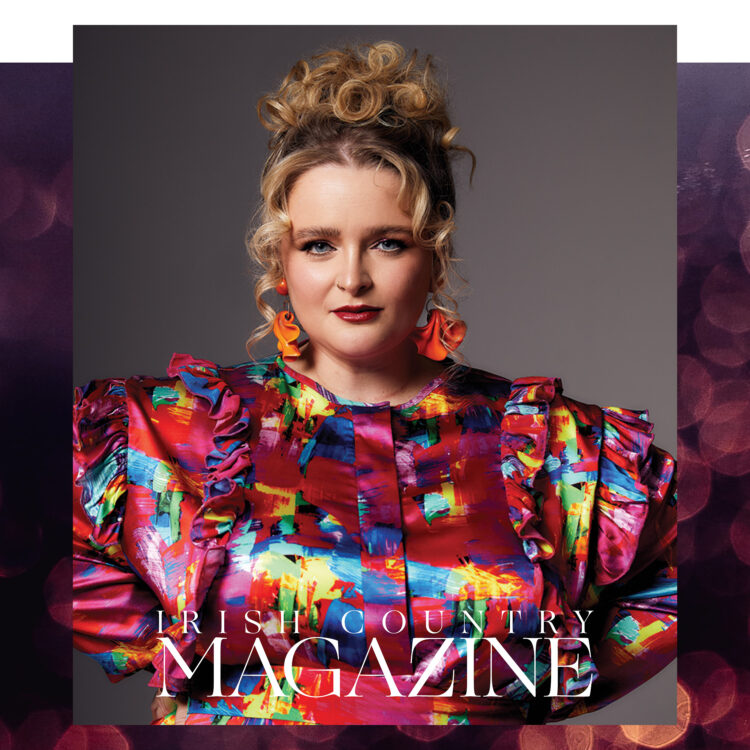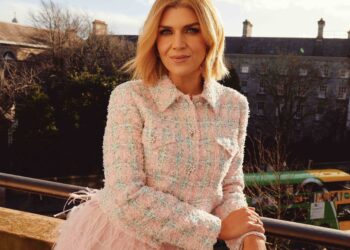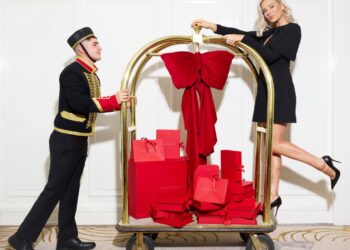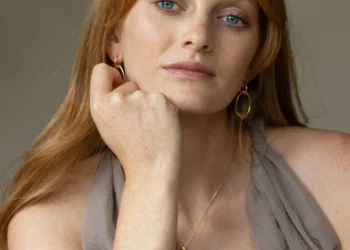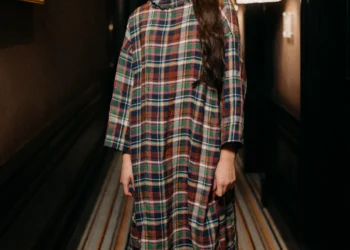As she celebrates turning 40, Louise McSharry talks pivoting from mainstream broadcasting to podcasting, taking control of her career and speaking out for causes close to her heart
Correction: The below article has been corrected since appearing in the December issue of Irish Country Magazine, to accurately reflect Louise’s family life.
It’s been a hectic week for Louse McSharry. It’s the week after her 40th birthday, which she spent in the rustic Sheepwalk House, County Wicklow with 35 of her closest friends. The celebration was a big one for a myriad of reasons.
Not because the uphill ascent of a fourth decade scares her (“it’s so arbitrary – I still wake up the same person, but it does feel good to be in complete control of my life, well, except for stuff with my kids, obviously. They’re actually largely in charge of my life”), but namely, because she’s glad to be here. Here being a space she can finally occupy all on her own – without illness, heartbreak or self-shrinking to fit a better narrative.
We meet mid-morning on a Zoom call in late October. She arrives, her icy blue eyes are lined with tiredness (she’s done the “double school run” for Sam (6) and Ted (3) as her husband Gordon is sick) yet beam through a shadowy screen. A canary yellow jumper covers her shoulders. Her face is bright and glowing. ‘HIP HIP HOORAY’ backdrops the call in gold foil bunting.
McSharry – cackling, conspiratorial, complex – is grateful and appreciative, and also has much to celebrate. Her podcast Catch Up is booming. She uploaded her first episode in March and is fast approaching half a million downloads. The weekly show, released every Friday, is often likened to the widely acclaimed and internationally-toured former piece The High Low presented by journalists Dolly Alderton and Pandora Sykes.
Catch Up picks up where WhatsApp group conversations and midday news broadcasts leave off, deconstructing the often haughty and jargon-filled topics of the day such as the budget and Roe V Wade, while skilfully slotting in lighter news topics such as Wagatha Christie and Leo Varadkar’s bleak meal prep pictures with ease.
It’s a path she has been set to occupy for a while, long before she was let go from RTÉ 2FM last October, some 11 years into her tenure, a move that shocked her fan base and resulted in her final two shows being cancelled. News of her exit was published extensively, with 2FM coming under fire for its lack of communication with the broadcaster.
It is undoubtedly Louise’s time now though, as she sits before me, her smile paved with relief. She boasts full control of her career; starting her own show, one which she produces and edits herself. “I’m really proud of how things are going,” she smiles. “The fact that I’ve been able to keep going. The people who listen really like it, which is amazing. And they seem like really nice people. So I’m really happy.”
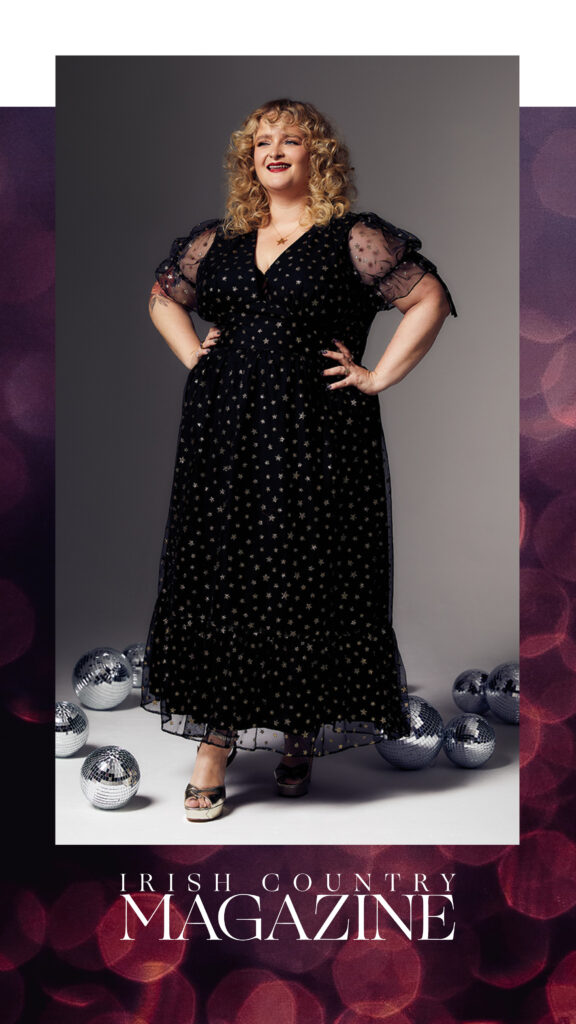
Family ties
As a public figure in Ireland, aware of the media’s prickly idiosyncrasies, the worry is that her words, often brash and unforgiving, may come across as cruel. This never happens. McSharry speaks with considered kindness and truth that only someone with thick, deeply misunderstood skin could.
As a child, she was adopted by her aunt and uncle age 7. From Ireland, she travelled to Chicago “between the ages of 7 and 15”, then to the UK for a time only to finally return to Ireland in her late teens. It was a difficult, unsettling time, one of broken friendships and wavering self-esteem. Her father died at a young age, and a young Louise learned to deal with her biological mother Dee’s alcoholism.
“I definitely was old before my time,” she says now. “My son Sam is now six, and I’m thinking about the things that had already happened in my life when I was six, or some of the things that I was dealing with and it’s like, mind-blowing to me.”
She recently found out that her adoptive mother, now 58, has been diagnosed with Alzheimer’s. It’s been tough, she sighs.
“Before she was diagnosed, I think we all had kind of come to the conclusion that that was probably what it was. We’d noticed changes in her memory and in the way that she interacts with people and stuff. So yeah, she was diagnosed earlier this year, and it’s really difficult.
“But I think, in a way it was a relief for her because she was kind of keeping a lot of it to herself. I think for a long time, literally years, she thought she was, you know, ‘going mad’ as she might say now. I think she thought she was losing her mind in a way that feels, I think to her, less acceptable than a diagnosis like Alzheimer’s, even though it’s absolutely horrible.
“And I think because there’s a concrete explanation for why she’s been the way she has been, there was a bit of relief in the diagnosis. She’s mostly in good form which is good, but it’s certainly one of those things that makes you reassess everything.”
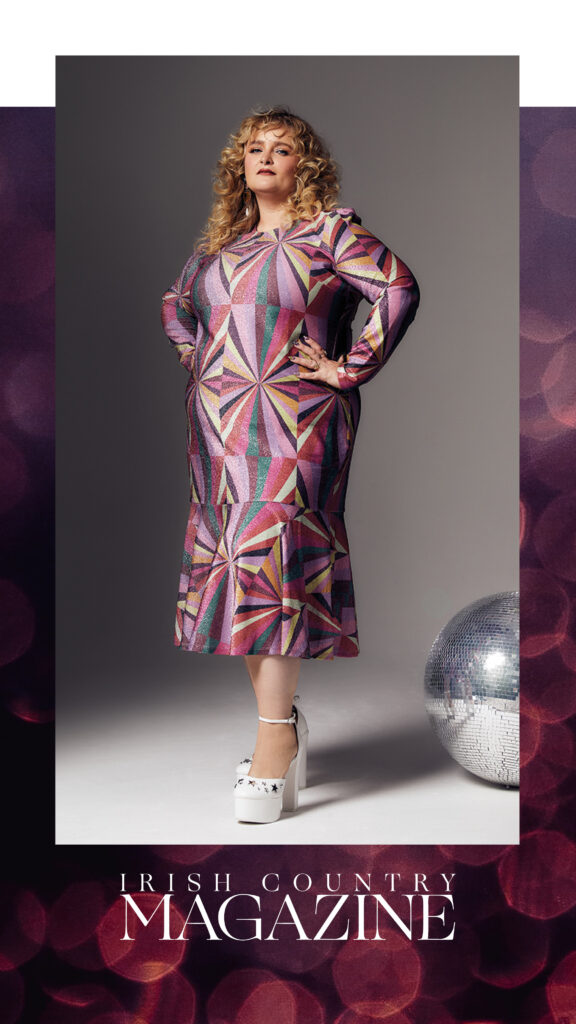
Body talk
McSharry exhibits that rare combination of self-confidence and insecurity as if she were a person emerging from a long period of self-examination, the natural next path of someone who has continued to be imprudently overlooked.
She has fought to represent fat people (her words, ones which she feels are important) in spaces that have felt and continue to feel exclusive. A recent video on her Instagram replying to a TikTok which is captioned ‘when you board the plane early and then have the anxious 10-minute wait praying no big people sit next to you’, sees McSharry speak boldly to camera and say to her 57,000-strong follower count: “I want to say to fat people like me, your life is just as important as her life. You deserve to travel as much as anyone does.”
It is a subject on which she sounds both profoundly sanguine and a little bit pissed off, yet also somewhat hopeful. We speak in the same week that Disney has released its first plus-size character as well as the launch of a study that determines new clinical practice guidelines for the treatment of obesity for adults. Obesity will no longer be solely defined by weight in recognising that it is a disease defined by many factors.
“I’ve gotten to the point where the word fat is a completely neutral term for me, but I’m quite conscious of the fact that it is not that way for other people,” she says. “And so I always kind of qualify it when I use it because people can have quite a physical response to it because of the way we were socialised and raised. Certainly, when I was a kid, it was weaponised massively against me throughout my whole life, but I couldn’t believe how empowering it felt when I started using it to describe myself. It just removed all the power from the word.
“In reality,” she pauses to contemplate, “I don’t think anyone would be hard-pressed to find a fat person who if they could take a magic tablet one time and wake up the next morning and be thin wouldn’t take it, because it’s an easier life,” she shares, her eyes linked with mine. “Because we live in a world that makes living in a bigger body very difficult. Just literally from a logistical point of view, I would be thin tomorrow if I could be, but like the reality is, that’s not a possibility for me.”
It’s a topic she covers at length in her memoir Fat Chance, released in 2015 following her diagnosis of Hodgkins Lymphoma, a cancer she has thankfully fully recovered from. McSharry, 31 at the time and due to be married months later, documented her journey in an RTÉ documentary F**k Cancer, telling the camera that people complimented her figure while going through treatment.
“Someone said to me, ‘Oh you looked great at the start of the documentary – you were so thin,’ while I was going through literal chemo,” she says.
It’s a time she reflected on throughout the pandemic – “how lucky” she feels she had cancer when she did. “It must have been so scary to go through that with a compromised immune system,” she says now.
She too reflects on the parlance surrounding the disease, namely that of a ‘battle’. “The framing of it as a battle that some people win and some people lose entirely shifts the blame and responsibility on the individual,” she says, with the credibility of someone who has seen the worst of it.
“Doctors do their absolute best and it either works or it doesn’t. I went through cancer at the same time as a friend of mine, I’m alive and she’s not – and it’s not because I fought harder than she did. It’s just the way it goes.”
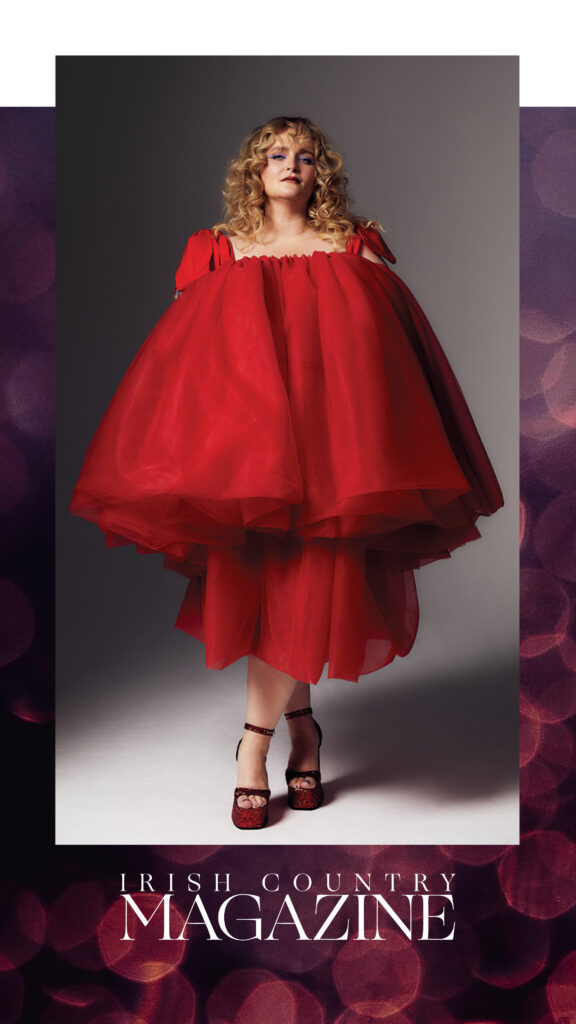
Using her voice
With McSharry, you quickly learn that humour and candour go hand in hand. One look at her Twitter likes confirms this, pivoting from New York Times news pieces about the clitoris not being studied at medical school, to excessive love for Heidi Klum’s Halloween worm costume.
The more we speak, it becomes clear that McSharry has endured a personal revolution as well as a professional one. In essence, the work she does today feels far more ‘her’ than ever. She had always set her sights on talk radio, mentioning once in passing that her ideal gig would be the The Late Late Show.
She speaks her mind now in a way she never could before, calling out morally indecent experiences, a compulsion she feels she can barely control: “I can’t stop myself,” she laughs. “I just have a real sense of what’s right and what’s wrong.” Ultimately, the lines between her personal life and her professional life are blurred. Just how she likes it.
“The thing with Louise and why people are so drawn to her is because she’s so authentically herself,” political correspondent and friend Aoife Moore, regular contributor to Catch Up, tells me. “There is no bullshit with her whatsoever.
“People also really relate to her vulnerability, especially as a woman in the public eye, where we’re almost trained to be guarded. The reason she’s so powerful in Irish media is because there’s absolutely no one like her. She’s also potentially the least judgemental person I’ve ever met.”
The noon light shifts as we begin to wrap up our chat, and I notice her body visibly relax for the first time. She smiles, her eyes shifting sideways, to think. “I feel very lucky to be 40,” she finally, solemnly shares.
“Last year I had a realisation; that I was 19 years into my broadcasting career, and I started to wonder how long I was going to wait for an opportunity to come knocking. I was ready for a talk show opportunity and had gotten good feedback throughout the years, and I always felt a natural ability for it.
“Obviously, the move [to do my own podcast] was scary, financially and otherwise, but life is short and right now I’m really, really happy,” she says, smiling.
Before we go, she waves her neon yellow and blue cow-print nails one more time. She has one final thing to say.
“Previously in media, it was a thing that women kind of fell off a cliff at 40, because they’re no longer relevant or interesting. And I don’t intend on falling off any cliffs,” she laughs. “I’m not going away any time soon.”
With thanks to the team: Photography Aaron J Hurley; Styling Anne O’Shea via Morgan the Agency; assisted by Orlaigh King and Adam Walsh; Hair Nadine Walshe using Andrew Fitzsimons; Makeup Ben Sun; Location Bond St Studios.

